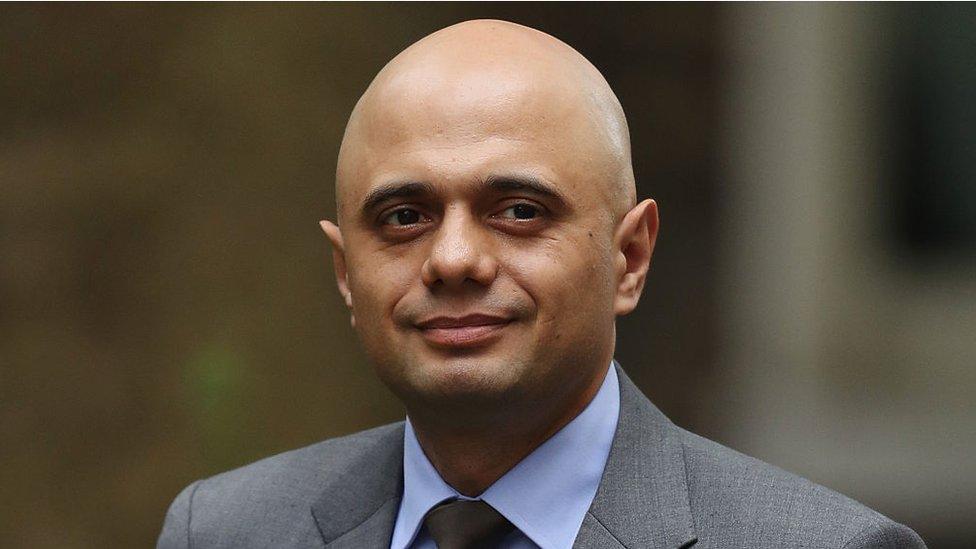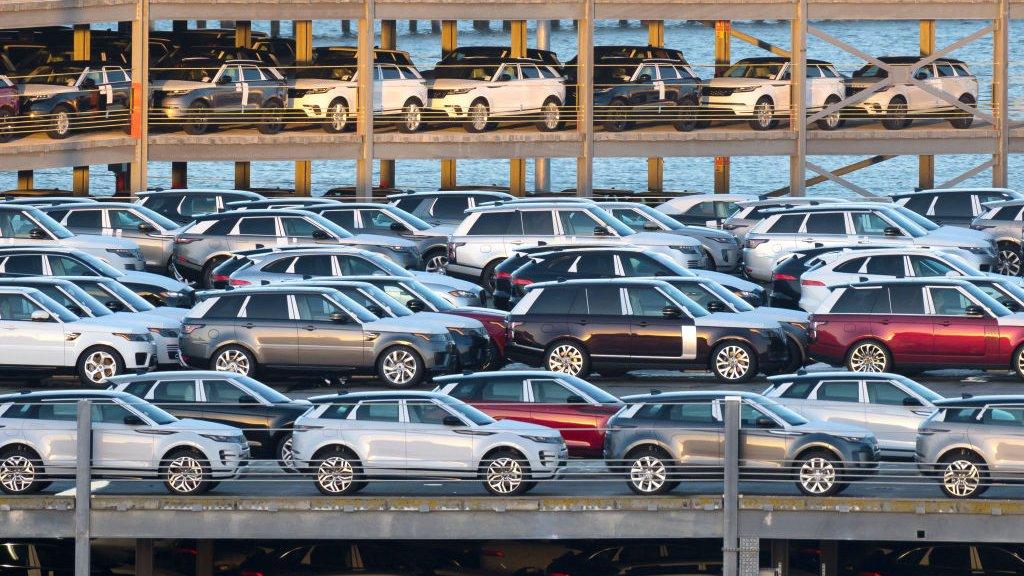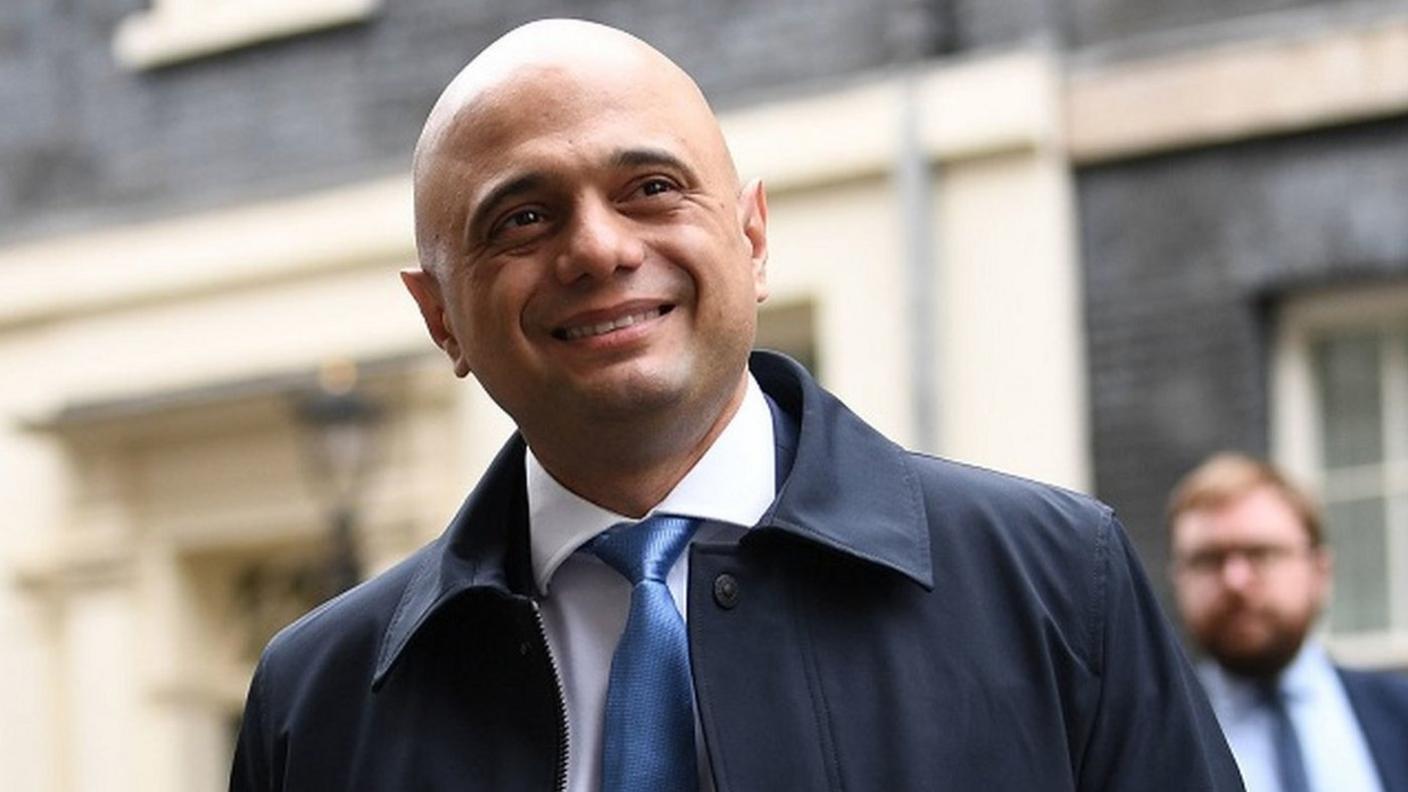Chancellor tries to reassure firms on post-Brexit trade
- Published

Chancellor Sajid Javid has taken steps to reassure businesses.
Business leaders have welcomed what they call a clarification of the government's view that there would be "no alignment" with EU rules in a post-Brexit trade deal with the EU.
Chancellor Sajid Javid said the UK would use the power to diverge from Europe only when it was in the interests of business.
Concerned businesses had questioned him at the World Economic Forum.
His words, just six days ago, caused shockwaves for British industry.
Businesses had assumed the UK would stay closely connected to European rules and standards, where industry needed it.
Answering questions from UK chief executives at a Davos lunch, Mr Javid said that although the UK could not be a rule taker, for democratic reasons, "it doesn't mean we will diverge for the sake of it".
Business group the CBI welcomed the clarification that there could be scope for continued alignment for the car or chemicals industry.
"It's good to have clarification that in terms of divergence from the EU, that will be when it is in the economic interests of the country. It is not an obligation, it's a right we can use if we need to use it," the CBI chief Carolyn Fairbairn, host of the lunch, told the BBC.
Other attendees said they had made clear to the chancellor that unnecessarily introducing friction into manufacturing supply chains would reduce, not increase investment spending.
The chancellor dialled in to a key cabinet committee meeting on post Brexit-trade strategy just after the lunch.
The purpose of such freedoms is to help the government forge new trade deals with, for example, the US.
US-UK trade deal
Mixed news on that at the forum. On the one hand the US Treasury Secretary said a US-UK deal could be done this year.
But on the other, sabre-rattling continued on issues such as an imminent decision by the government to allow Chinese firm Huawei to supply some of the new 5G mobile network in the UK.
Following yesterday's trade war threats over digital taxation, France agreed with the US a delay in the collection of its digital tax until the end of the year.
French finance minister Bruno Le Maire suggested to the BBC that "the best solution" would be if everyone, including the UK, which will begin its tax in April, instead focussed on an international solution.
- Published22 January 2020

- Published18 January 2020

